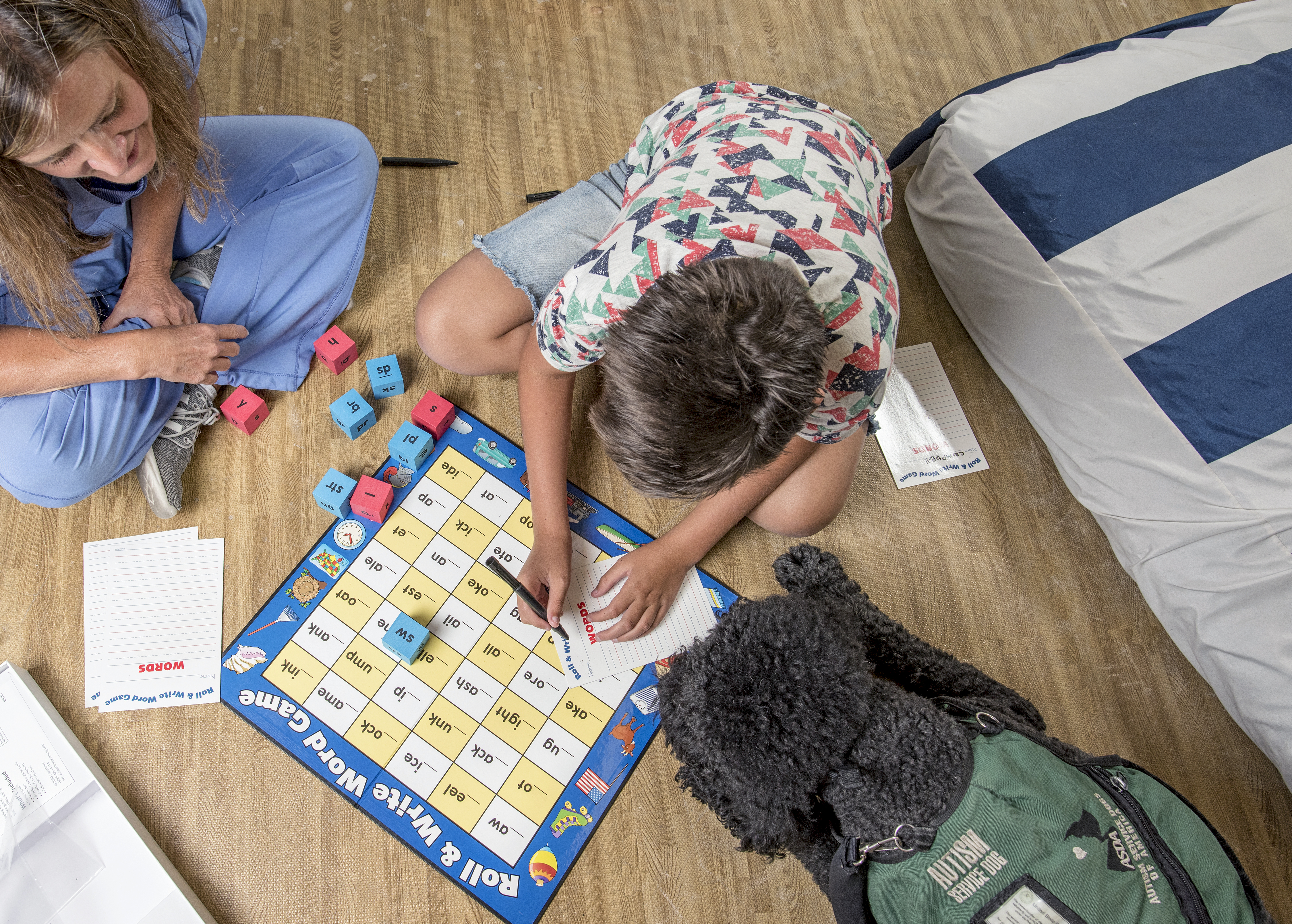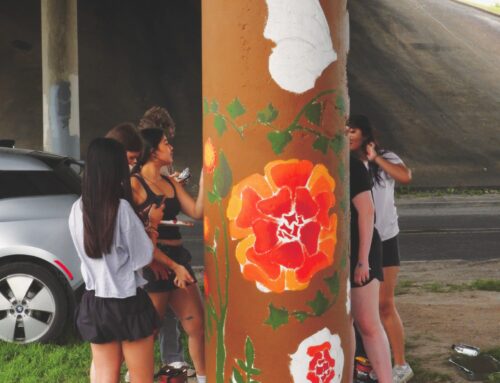Hope was despondent. She had lost her purpose. All of her training, her hard work, what made her feel alive, were now gone.
She bummed around the house lazily while everyone else was at school or work, her previously engaged mind listless.
One day, she sprinted out of the house and jumped in the car uninvited, eager to catch a ride somewhere and just do something.
Soon Hope’s family found an opportunity for her to be back to her old self. Lakewood’s Therapeutic Movements is an occupational and physical therapy practice that works with a wide range of children, many of whom are on the autism spectrum. It is the perfect place for Hope’s skillset.
Dalton Pfiffner, Therapeutic Movements’ owner, was familiar with Hope’s impressive resume, and was excited about having some help around the office.
Hope is no ordinary employee. The black labradoodle is a highly capable autism service dog that received $18,000 worth of training to assist with kids who struggle to interact with the world.
Hope was so effective that she lost her job with her owners, the Golden family in Lakewood Hills. She worked with Gray Golden, who struggled leaving the house with his family; he would run away, throw himself on the ground and lash out at others.

Photo credit: Danny Fulgencio/Advocate Magazine
Hope provided an anchor for Gray, steadying him emotionally and physically. She was tethered to him and would stand firm when he lost control or tried to run. Eventually, Gray no longer needed Hope’s help to be out in the world, and Hope returned to being a pet.
The Goldens thought about returning her so that she could help another child, but she was a member of the family by that point. Pfiffner had been Gray’s therapist for years and one day asked if the family thought Hope could come by the clinic and aid other children there.
“Their fears and social anxiety are addressed,” says Pfiffner. “The animal is not judging you like people are.”
“She would love to go back to work,” Gray’s mother, Rhoni Golden, said.
Now Pfiffner picks up Hope a few days a week and takes her to the clinic, where she works with other children. The dog helps create distractions if children become upset, blowing in their faces or rolling on her back. She also accompanies children on outings into the community as Pfiffner develops their ability to interact with strangers and other life skills.
Hope provides a conversation piece for the children. They can talk to others about the dog rather than themselves, which is an important aid for children who struggle with interpersonal communication and social norms. Hope accompanies her clients on trips to Starbucks or Whole Foods, where they chat with employees.
“Their fears and social anxiety are addressed,” says Pfiffner. “The animal is not judging you like people are.”
Campbell Polito is another child who does therapy with Pfiffner and Hope. His mother Sunny has seen the impact the pup can make on her child’s social skills.
“He is comfortable talking about the dog,” she says. “Hope is just phenomenal and facilitates his interaction in the community.”
As for Hope, the days of her doggie depression are over.
“Hope is definitely happier,” Rhoni Golden says. “She has her purpose back.”





